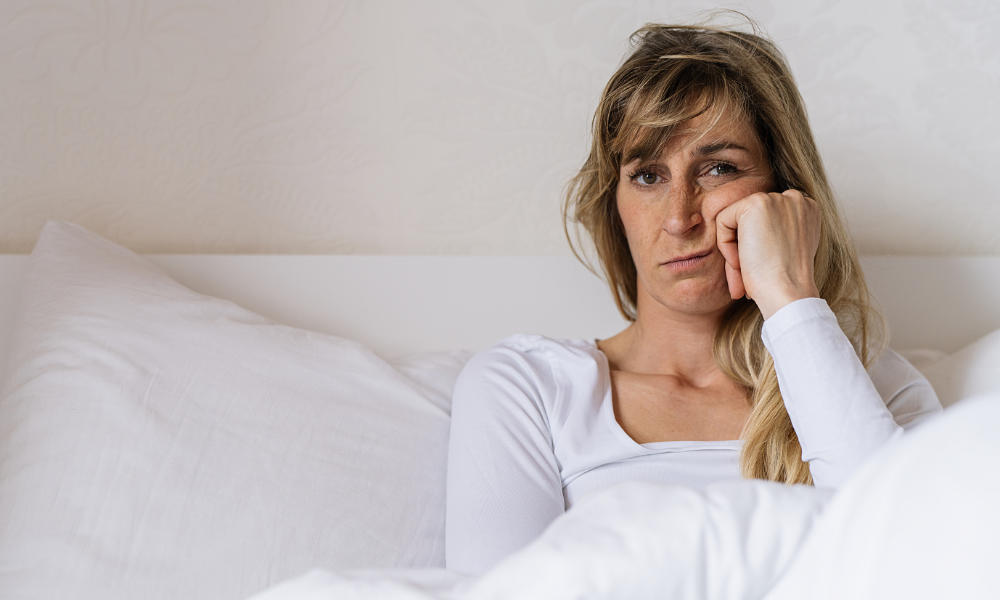How Hormonal Imbalances Block Adequate Sleep

One of the biggest mistakes that most people make is not sleeping enough. Sleep is just as important as exercising and nutrition when it comes to being the healthiest version of ourselves. But we don’t usually realize our inadequate sleep is what is triggering daytime drowsiness, lack of mental clarity, fatigue, and weight gain.
But what if you WANT to get adequate sleep but your mind and body says otherwise?
One of the biggest culprits of sleep issues is stress. Sleep and stress go hand-in-hand. When you’re stressed, you can’t sleep. When you can’t sleep, you’re stressed. Round and round we go!
When you address the core of your stress and sleep problems, your body can better rest and rejuvenate. But how do you figure out your sleep issues? The most common reason for sleep disturbances is a hormone imbalance.
Hormone Imbalances
All hormones and chemicals that govern our body are affected by sleep – even the hormones that control our weight.
When we are asleep, the body is not producing as many stress hormones as when we are awake. However, that said, if your body has produced too many stress hormones during your wakeful period, this may contribute to a vicious cycle of not being able to get to sleep or stay asleep.
Hormone imbalances can make you feel nervous, restless, and you can’t turn your brain off when it’s time to go to sleep. Sound familiar? Unfortunately, not enough sleep can influence hormones and getting a good night’s sleep is essential to keeping your hormones balanced. Another vicious cycle, right?
Getting adequate sleep is important for regulating a number of hormones, including cortisol, estrogen, progesterone, melatonin and even our hunger hormones (insulin, leptin, and ghrelin).
So, if you are having sleep issues, balancing your hormones may help you get the sleep your body needs.
How to Naturally Improve your Sleep
One way to improve your sleep is to make sure your body is getting ample amounts of magnesium.
Magnesium is one of the most common minerals on earth and is present in many foods and is essential for human health. This mineral has wide-ranging effects in the body and influences the processes that promote sleep. It helps relax the mind and body thus improving sleep. It also provides relief from the symptoms of stress and anxiety which can both have a negative impact on sleep. If your insomnia is related to an underlying mood issues such as depression and anxiety, then having ample amounts of magnesium in your body just might do the trick.
Magnesium can help us fall asleep faster.
Magnesium is known to help regulate melatonin secretion, a hormone responsible for guiding the body’s sleep-wake cycles. Magnesium also binds to GABA (gamma-aminobutyric acid) receptors. GABA is the neurotransmitter responsible for quieting down nerve activity therefore it helps prepare your body and mind for sleep.
Magnesium can help us reach a restful sleep.
Not only can magnesium help you get to sleep, but it plays an important part in helping you reach a deep and restful sleep. Studies have shown a magnesium deficiency causes sleep patterns to be light and restless. This is partially due to this mineral’s influence on the nervous system.
Many of followers tell us they start sleeping well after starting to take Craving Defender which includes a balance of ingredients including the important mineral we’ve been talking about in this post, magnesium. And Craving Defender also helps defend our cravings and helps us lose weight—a WIN – WIN!
Struggle with cravings? Visit our Cravings Page!
